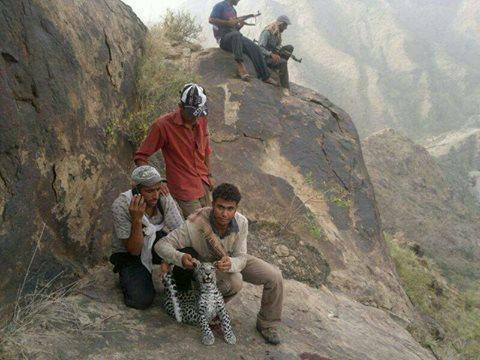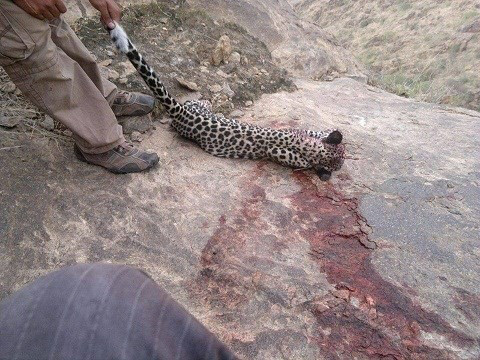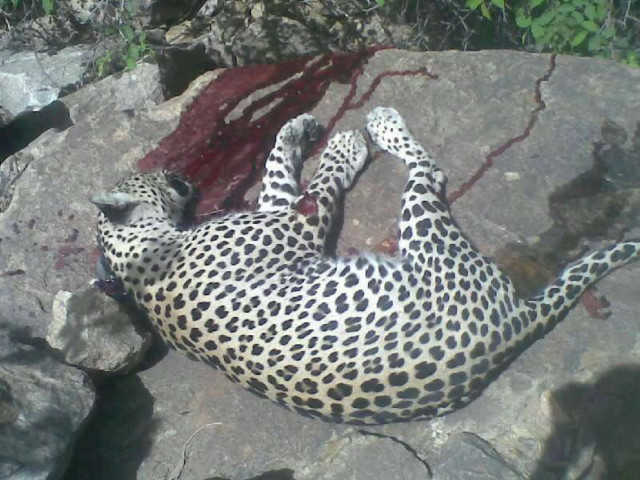
Sana’a: Wildlife conservationists have raised alarm over the dwindling number of Arabian leopards in Yemen after pictures surfaced in local media of poachers flaunting their kill.
In July, photos of armed young men dragging three dead leopards in the Al Shouaib region were circulated in the local press. “This is a tragic case of ignorance that threatens the remaining endangered species of wild Arabian leopards,” David Stanton, the co-founder of the Foundation for the Protection of the Arabian Leopard in Yemen, told Gulf News.
Stanton urged the government to take serious steps to protect the animals. Local residents speaking to Gulf News said that the animals were shot by local shepherds after they were found to be preying on their livestock. However, the photos show the animals were hunted in the mountains.
Stanton says the leopards sometimes prey on livestock due to the destruction of their natural habitat and depletion of wildlife to prey upon. Also, there are hunters who kill the animals for sport or trap them and sell them in the black market.
The government’s Environment Protection Authority did not respond to Gulf News’ request for an interview. General security in Yemen is a daily concern for the government and the people and often impedes efforts to protect these endangered animals. The leopards generally are found in the restive province of Al Dhalae, where authorities have been engaged in continuous fighting with south separatists since 2007.
The animals could be protected, however, says Stanton. “There should be strict laws criminalising hunting leopards,”
Esmail Abdullah, head of the Conservationists and Sustainable Development Organisation, an NGO based in Sana’a, told Gulf News. “People brag about poaching leopards. We must spread awareness that these animals are not as dangerous as they assume and need to be protected,” he said. The locals say they wouldn’t shoot and kill the leopards if the government provides them with tranquilliser guns.
“Surely, there is plenty of money in the Gulf to ensure the protection of these animals,” Stanton said.














